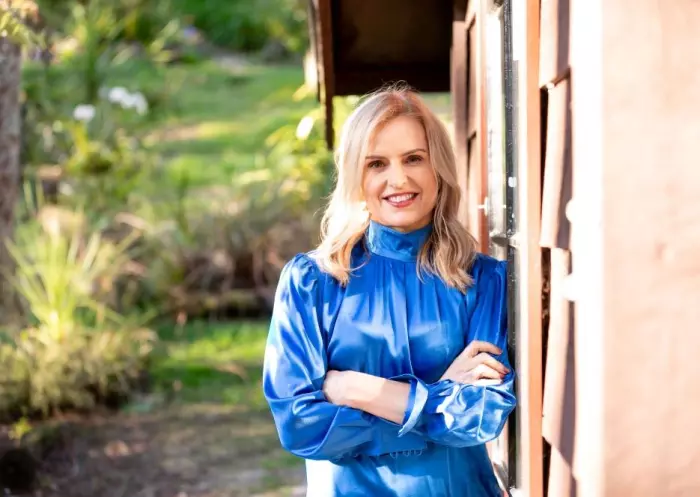About the time a court was consigning Lisa's 15-year marriage to the rubbish bin, the mother of two was searching for coins down the back of her sofa.
“I was flat broke and needed to buy bread for the kids’ lunches,” says Lisa (not her real name).
The 44-year-old admits she was totally unprepared for how little money she’d have after the slow unfurling of her marriage to an accountant.
“Because he understood money, my ex looked after all the accounts,” says the mother of boys aged 13 and 12.
“And I trusted him to do so. But when he left me for a woman he met at the gym, it meant I had zero oversight of how much money we had, of our investments, or how much debt we were in.”
It also meant her savvy ex-husband could tip the financial see-saw in his favour. That included keeping the family’s Wellington home. “I’d put so much blood, sweat and tears into renovating that house and establishing a garden that it was hard to leave. By then I was so ground down, I had to walk away.”
Although Lisa’s lawyer encouraged her to fight for what was rightly hers, she knew her ex was always going to come out on top.
“I suspect he squirrelled money away in different accounts to hide it, knowing I’d never find out. I could kick myself for not knowing more about our assets, because I’ve had to start all over again.”
It’s a sentence, or a variation of it, that Bridgette Jackson hears a lot.
The Auckland divorce coach launched her business, Equal Exes, in 2019. It aims to help people “divorce well”.
“It’s about helping people make the best possible decisions for their future,” says Jackson. “Around 70% of my clients are women, many of whom are struggling to retain the same kind of equal financial footing as their ex-partner.”
It’s the same the world over, because figures show that globally, around one in five women fall into poverty as a result of divorce.
“So many women are totally unaware about their family’s financial situation, from what their husband earns and what the mortgage is, to what they own and owe,” says Jackson, a qualified lawyer.
“In partnerships like this, the woman is often busy with the kids and he’s busy earning the money and controlling the financial arrangements. As long as the money turns up in her account each month and she can spend what she likes, it’s often easier to leave him to it.”
Jackson knows what she’s talking about. The mother of four teenagers started her business after an acrimonious divorce that cost her $500,000 in legal fees.
“I’ve been there because I, too, had no idea about our finances. I was working as a trustee and acting chair of the NZ Gynaecological Cancer Foundation and earning good money, but my ex took care of all the financial details. You never expect your marriage to end, so I let him get on with it.”
In the end, Jackson spent five years fighting her way through the financial, emotional and parenting maze. “I realised there had to be a cheaper and easier way to do this. There was a real gap in the market for someone who could help steer people through what is often one of the worst experiences of their lives.”
While lawyers provide legal advice, divorce coaches take up the slack in terms of practical and emotional support.
“It’s about guiding people through a separation so that both parties can receive a fairer financial and emotional outcome,” Jackson says. “That includes everything from relationship counselling to dispute resolution.
“If clients are sure their relationship is over, I help them get ready for the divorce process with things such as choosing the best lawyer for their needs, what questions to ask their lawyer, how to split the shared assets, drawing up a co-parenting agreement, and preparing for court.”
It does, she says, help clients save money. “Divorce coaches are cheaper than lawyers, and while we’re not a substitute, we can give you pre-legal advice that will save you time when dealing with your lawyer.”
Many of Jackson’s clients are women who are in the dark about their family’s finances and shared marital assets. The reason, she admits, is that many women are never taught how to manage money.
“There’s this belief that still exists with some women that finances are too hard and if someone else can take care of it for you, then let them do it. That’s reinforced by a Commission for Financial Capability study which revealed that while men increase their financial knowledge with age, women do not.”
We also tend to be far too trusting of our partners when it comes to money.
“I see women who’ve been at home with the kids for the last 15 years while their partner has been working and looking after the bills, mortgage and assets,” Jackson says. “Many of these women are left high and dry with no funds to fight their ex-partners for what’s rightly theirs from the relationship property pool.”
She tells the story of one of her high-net-worth clients, a woman who earned north of $1 million but whose financial affairs were so controlled by her ex-partner that she had to borrow $1350 from her friends to pay Jackson.
“This woman didn’t want her husband to know she was planning to divorce him as he would have grilled her about the missing $1350. The level of control was unbelievable.”
Jackson’s advice to her female clients when they re-couple, and to all women, is to change the way they think about, and manage, their finances.
“Money can make people act strangely and it takes a lot of will to change the way you think about it. You need to sit down with your partner and say you want to know where your joint finances are at, including all the assets and debt, your retirement planning, child support payments, and the way you both approach saving and spending. Having full and frank communication about money is the only way to break old patterns and get to know each other financially.”
That, of course, relies on the woman being willing to learn and her partner being willing to loosen his financial grip.
Jackson also advises women to set up a nest egg, a separate bank account they can put money into that their partner can’t access.
“Even if divorce is a remote possibility, you should always have access to your own money. If your spouse moves out and stops paying bills, you’ll need to pay them until temporary support orders can be entered. If you’re the one filing for divorce, you’ll need money for a legal retainer and other associated costs.
“In the first instance, you should always stay in the family home for as long as you can. However, if you move out of the marital home in the future, you might need money for a rental bond, your first month’s rent and for household items. Start saving now and plan to initiate divorce proceedings when you’ve built up a nest egg.”
So concerned is Jackson about the level of women’s financial literacy that she’s about to launch a financial capability programme. Aimed at addressing the struggles she’s witnessed clients facing after divorce or the death of a spouse, as well as at those seeking greater financial independence, the programme, created with Cambridge Partners, focuses on financial planning, making smart use of debt, learning and talking and saving and investing.
“Increasing financial literacy can help people transition from merely surviving to thriving,” she says.














